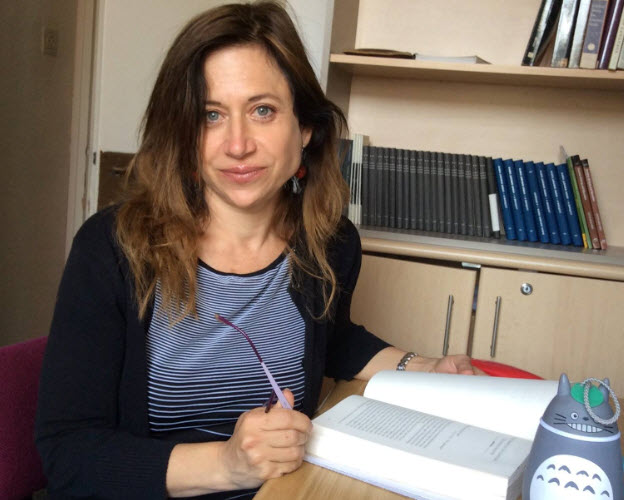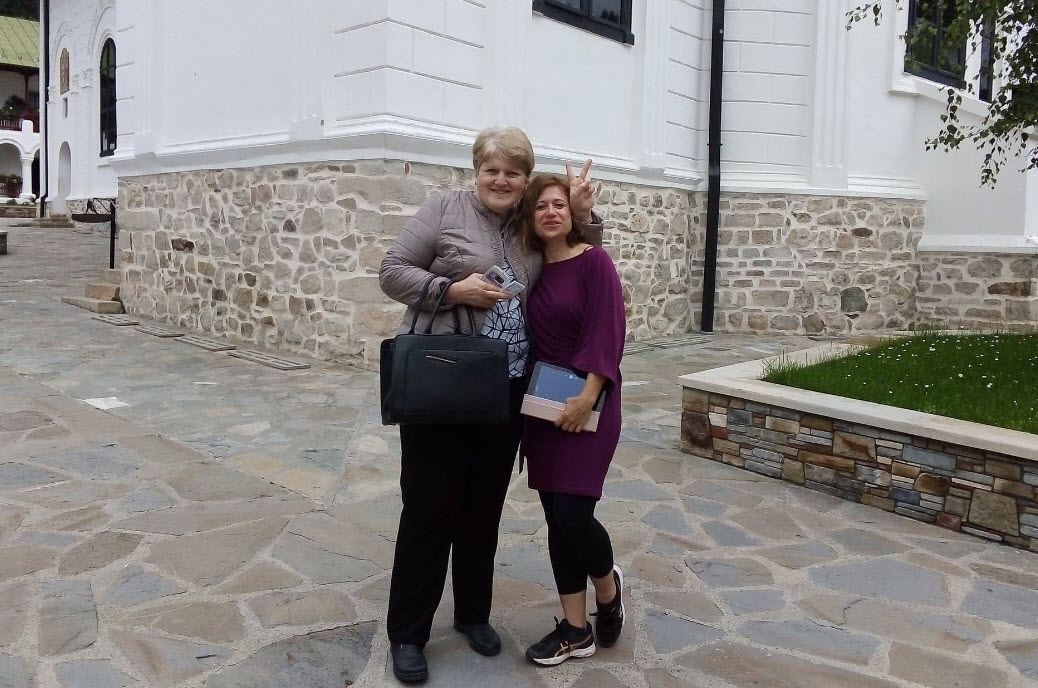 Prof. Marcela Sulak is an Associate Professor of English in the Department of English Literature and Linguistics at Bar-Ilan University. She directs the Shaindy Rudoff Graduate Program in Creative Writing and teaches American literature, prosody, creative writing, translation, documentary poetics, and hybrid literature. She is the Managing Editor of The Ilanot Review and hosts the podcast, Israel in Translation at TLV1.
Prof. Marcela Sulak is an Associate Professor of English in the Department of English Literature and Linguistics at Bar-Ilan University. She directs the Shaindy Rudoff Graduate Program in Creative Writing and teaches American literature, prosody, creative writing, translation, documentary poetics, and hybrid literature. She is the Managing Editor of The Ilanot Review and hosts the podcast, Israel in Translation at TLV1.
Prof. Sulak was born in South Texas. She received her PhD in English from The University of Texas at Austin with concentrations in American Literature and Poetics. She received her MFA from the University of Notre Dame in South Bend, Indiana.
Sulak has co-edited the ground-breaking survey, Family Resemblance. An Anthology and Exploration of 8 Hybrid Literary Genres (Rose Metal Press). She authored the lyric memoir, Mouth Full of Seeds, and four poetry collections, most recently, City of Sky Papers. Her translations from Czech, French, and Hebrew have been awarded a National Endowment for the Arts Translation Fellowship and have been nominated for a PEN Award for Poetry in Translation.
Prof. Marcela Sulak Shares her Thoughts about Erasmus+
In June 2019, after the Iași, Romania conference, “From Runes to the New Media and Digital Books”, the participants shared coats, stories, dance moves, and jokes on our way to the Agapia Monastery in Romania where the air is perfumed by fir forests. We rapidly gathered within the walls of the monastery as a violent rain began and thunder and lightning cracked the air. Soon, the peals of church bells began to echo. The sisters of the convent were ringing the bells to assure the village that the sisters were praying for their safety. They explained that the bells themselves dispelled the clouds.
 I thought about that often after I left the wonderful conference – my second international conference in Iași (the first, in 2017, was a joint conference with Chernivsti in Ukraine). Both times, scholars from all over Europe had come together to confront potentially threatening issues, such as the commercial and cultural challenges to book culture, fruitful and meaningful dialogue based on values and facts, ideologies and faith (the material of literature and cultural studies), and had forged strong bonds that allow us to move forward in our disciplines, together, into the future.
I thought about that often after I left the wonderful conference – my second international conference in Iași (the first, in 2017, was a joint conference with Chernivsti in Ukraine). Both times, scholars from all over Europe had come together to confront potentially threatening issues, such as the commercial and cultural challenges to book culture, fruitful and meaningful dialogue based on values and facts, ideologies and faith (the material of literature and cultural studies), and had forged strong bonds that allow us to move forward in our disciplines, together, into the future.
From these conferences and two teaching visits, I began to identify and approach colleagues in Iași, Olomouc in the Czech Republic, and Budapest in Hungary, with the hope of creating a joint MA program through Erasmus+. To this end, I joined with professors Dana Badelscu and Oana Cogenau to create a summer seminar entitled “Cultural Translation and Diasporic Literature” at Bar-Ilan University in September 2020.
It was an overwhelming success that provided 14 graduate students with a meaningful course they could not have found elsewhere in the world. It gave our literary translation students much-needed background and theoretical frameworks for their studies at Bar-Ilan. This spring, I have taken advantage of the pandemic, which tragically moved our courses online, to move to Olomouc, while teaching at Bar-Ilan online, to pursue plans for a future joint MA in American Literature and Cultural Studies that would include translation, folk songs, creative writing, and traditional literary studies.
As an academic who received her PhD in Texas and MFA in Indiana, I find the study and teaching of American literature in Israel and Europe exhilarating, for its expanded view of the impact of American literature on the world. I also see the advantage of studying the cultures from which American literature is renewed.
It is helpful to study issues that preoccupy America, such as immigration, the rise of populist political leaders, and changing economic structures in other contexts. I believe that the Erasmus+ programs are invaluable to the Bar-Ilan Department of English Literature and Linguistics, where I am an Associate Professor. As a former and future Director of the Shaindy Rudoff Graduate Program in Creative Writing, I feel that Erasmus+ offers so many untapped opportunities that I am eager to pursue.

Visiting the Agapia Monastery in Romania. L-R: Prof. Rodica Dimitriu, PhD, Head of the Department of English, Alexandru Ioan Cuza University, Iași, and Prof. Marcela Sulak, Associate Professor of English in the Department of English Literature and Linguistics at Bar-Ilan University
Contact Us for More Info
Leave your details and we’ll get back to you soon

